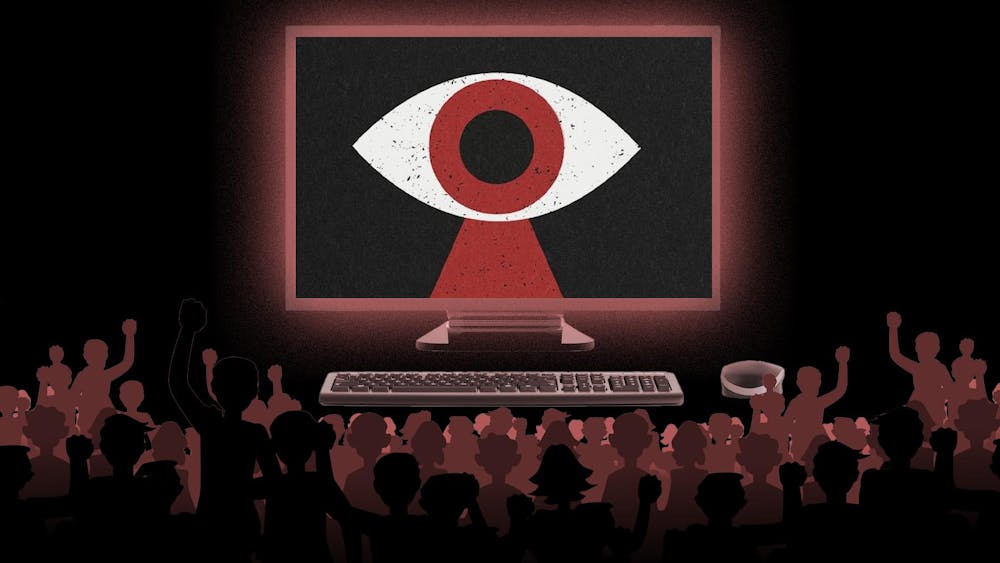Editor's note: This column has been updated to properly cite information found in a Think Progress article. The Observer regrets that it was originally published without proper attribution.
Today marks the 104th birthday of former President Ronald Reagan — the first authentically ideological conservative elected to the White House since World War II. Republican politicians hold Reagan as their gold standard for all things anti —anti-government, anti-taxes, anti-unions, anti-regulation, anti-minimum wage and ironically, anti-gold standard. Their mythical revisionist history describing Reagan could fill the sequel to "The Grimms' Fairy Tales." In short, much of what they wish Reagan had been is simply untrue.
Utilizing metaphors, illustrating poignant examples and linking worthy attributes to a candidate are hallmarks of a successful campaign. Some GOP candidates showcase the feel-good Reagan era of standing tall patriotism that contrasted with the malaise of his predecessor, Jimmy Carter. Similarly, Democratic candidates have demonstrated how they would mirror the economic success of Bill Clinton’s second term, but without idolizing or embellishing Clinton beyond fact or truth. Why should it matter that political discourse today still includes Reagan, who has been dead for more than a decade and out of office 26 years, which is longer than nearly any student on campus has been alive?
Rhetorically, Republicans — most recently Wisconsin Governor Scott Walker, who himself eyes a 2016 presidential run — attempt to bestow politically pleasing principles that they attribute to Reagan upon themselves. Unfortunately, most of the bridges they attempt to link their political stands with Reagan characteristics are either out of date or were never Reagan’s in the way that they describe. They rely on the political expediency of recycled junk to eventually take on a luster when incorporated into mythology.
Once a card-carrying Democrat and AFL-CIO affiliated union president at the Screen Actors Guild who served seven terms as its president, Reagan refuted progressive populist thinking to change political parties and join the GOP. Walker relies on Reagan’s anti-union conversion and dismantling of the Air Traffic Controllers' union during his first year in office as traits Walker shares with the former president in his current battles against Wisconsin public sector unions. However, neither Walker nor others who place Reagan on a rhetorical pedestal ever acknowledge how individualistically Reagan acted, thus not always perfectly aligning with today’s far right movement.
For example, as Zaid Jilani of Think Progress noted, Reagan’s Cold War mentality against the Soviet Union trumped any anti-union sentiment he may have held. The Polish union, Solidarity, formed in Soviet-occupied Poland as an independent trade union — the first free union ever within the USSR’s sphere of influence. Yet, unlike American unions, Solidarity political programs were farther to the left than any comparable American-based unions. Solidarity’s economic platform advocated worker-owned businesses in which workers decided holidays as well as the social control of the food supply so as to ensure that everyone was fed. In a radio message attacking the Polish government, Reagan condemned the outlawing of Solidarity, saying it was “clear they never had any intention of restoring one of the most elemental human rights — the right to belong to a free trade union.”
GOP operatives not only still cling to the mythical portrayals of Reagan being anti-union, but also ignore his massive government expansion of the military to outspend the USSR into bankruptcy. Most notably, though, Reagan’s strong military personae pales with his “cut-and-run” military withdrawal from Beirut in 1986 after bombings killed Americans. The public becomes fatigued during campaign season, when political advertising saturates our waking moments with this “Benghazi-like” proclamation. Yet, Reagan ran.
Finally, the notion that Reagan was a tax cutter who worshiped at the altar of lowest possible taxes is ridiculous. Reagan addressed budget deficits with 11 tax increases he signed into law during five of his eight years in office as noted in the Congressional Record:
In 1982, The Tax Equity and Fiscal Responsibility Act raised taxes by $37.5 billion per year and the Highway Revenue Act raised the gasoline tax by $3.3 billion.
In 1983, Reagan signed off on legislation to raise payroll taxes and tax Social Security benefits for some higher earners.
In 1984, the Deficit Reduction Act included increases in taxes on estates and distilled spirits and ended some business tax breaks, amounting to $18 billion per year in taxes.
In 1985, Reagan signed legislation making permanent a 16-cent federal excise tax on a pack of cigarettes, worth about $2.4 billion a year.
In 1986, the Tax Reform Act lowered the top income tax bracket from 50 percent to 28 percent, but to pay for the reductions, the law closed a number of tax loopholes.
In 1987, Reagan signed the Omnibus Budget Reconciliation Act that extended the telephone excise tax and eliminated a real estate tax deduction loophole.
Overall, Reagan’s budget had an Achilles heel. It counted “outlays,” uncontrollable items such as interest savings on reduced debt and “management savings” from agency reductions and reforms. These theoretical savings unfortunately never amassed.
On this day commemorating Reagan’s birthday, may he rest in peace along with those political myths and legends. But may the longstanding liberal policies he employed as president continue to shine daily.
Birthday myths create Ronald Reagan's ‘liberal’ legacy
The views expressed in this column are those of the author and not necessarily those of The Observer.









